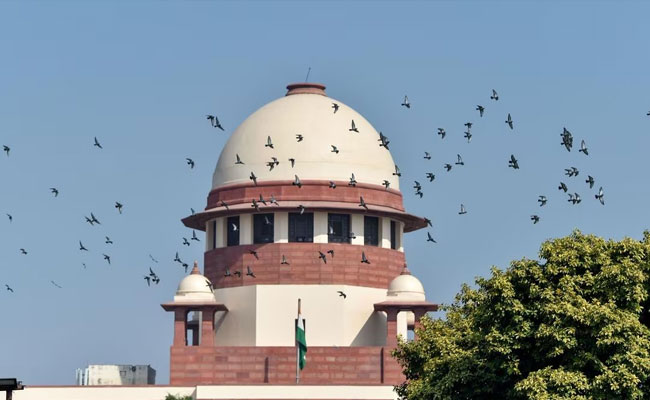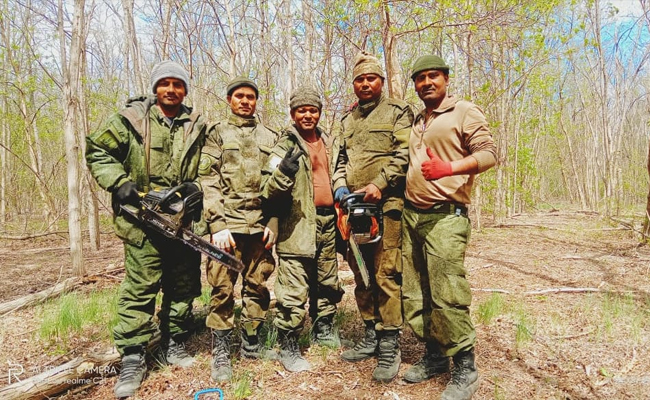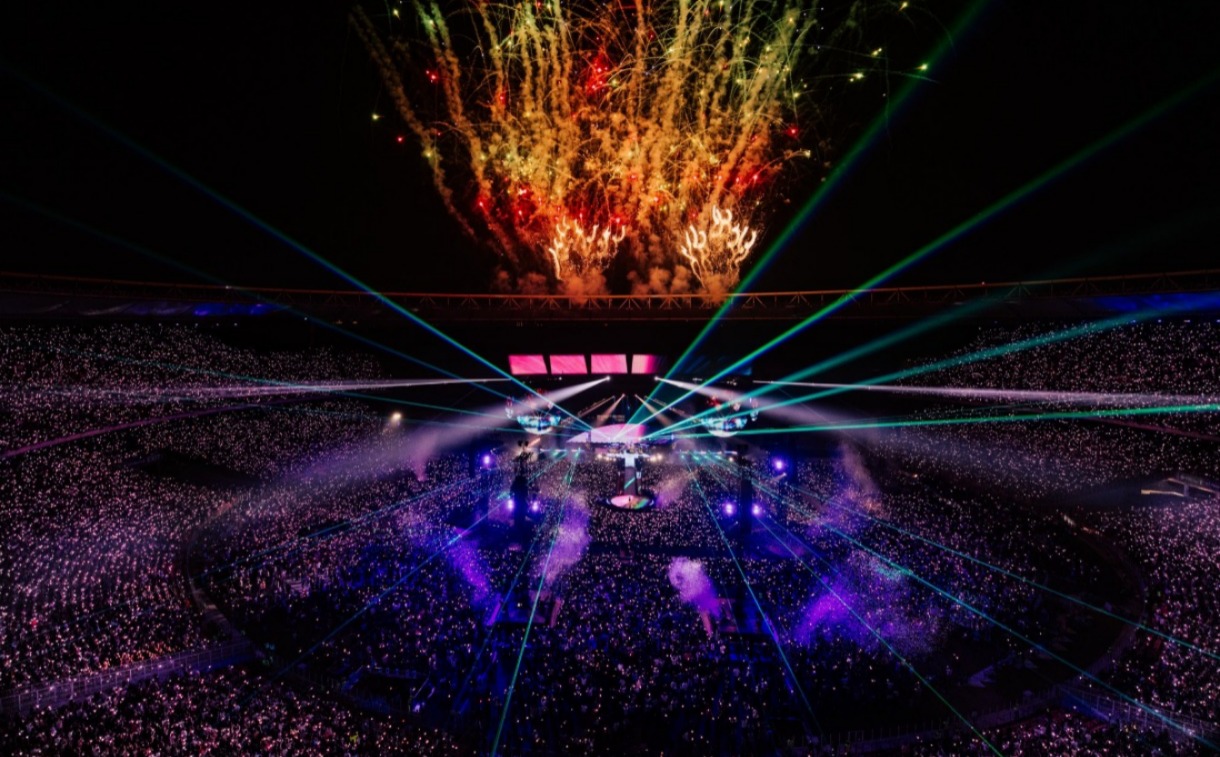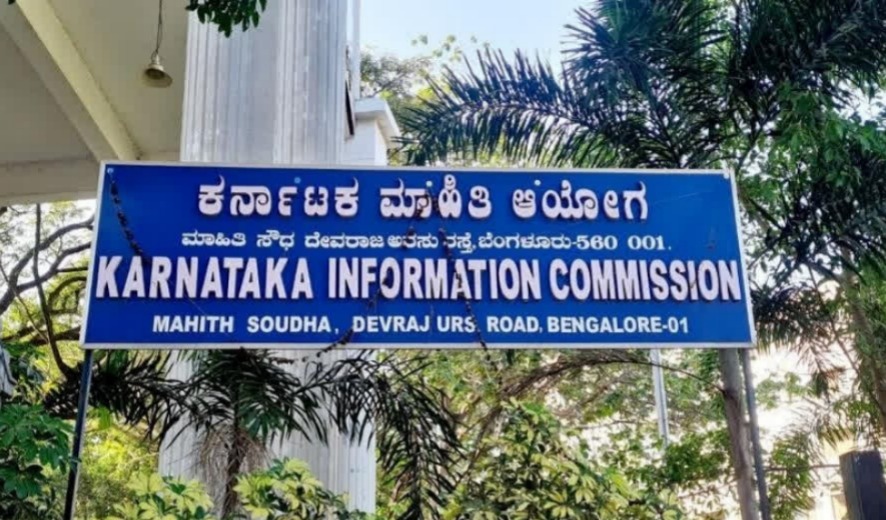Kasaragod (Kerala) (PTI): A decades-old lone crocodile, claimed to be a vegetarian, that inhabited the lake at the Sri Ananthapadmanabha Swamy temple here and often found roaming inside its premises was found dead late on Sunday night.
Temple officials told PTI that the crocodile, fondly called Babia, was missing since Saturday. Thereafter, the carcass was found floating on the lake around 11.30 pm on Sunday night and the same was conveyed to the police and the animal husbandry department, temple officials said.
The carcass was removed from the lake and put on public display as hundreds of people, including politicians, turned up on Monday for a last glimpse of the crocodile.
Temple officials claimed the crocodile was a vegetarian which subsisted on the 'prasadam' made there.
Union Minister of State for Agriculture and Farmers' Welfare Shobha Karandlaje said she hoped that the "God's own crocodile", which lived at the temple for over 70 years, attains 'sadgati' or salvation.
"Babiya, the god's own crocodile of Sri Anantapura Lake temple has reached Vishnu Padam. The divine crocodile lived in the temple's lake for over 70 years by eating the rice & jaggery prasadam of Sri Ananthapadmanabha Swamy & guarded the temple. May she attain Sadgati, Om Shanti!," she tweeted.
BJP state president K Surendran also paid tribute to the crocodile in a Facebook post. "Babiya has left. For decades, was a constant presence at the Kumbla Ananthapuram Mahavishnu temple. Millions of devotees sought its darshan, considering it as the image of God. Pranamam," he said.
Temple officials said that the carcass of the crocodile would be buried before Monday noon in a pit nearby.
The Mahavishnu temple is located at Ananthapura near Kumbla in the northern Kerala district of Kasaragod. The temple is known as the 'moolasthanam', the original source, of the Sri Anantha Padmanabha Swamy temple of Thiruvananthapuram, according to its website.
The temple's website also claims that a "very unusual phenomenon" there was the presence of a single crocodile in the temple lake, named 'Babia'.
"By tradition, the lake is inhabited by a single crocodile and in the memory of the very aged men the present crocodile happens to be the third one they have seen. When one crocodile dies another one inevitably appears in the lake and this continues to be an unexplained phenomenon," the website stated.
"There is no river or pond nearby where crocodiles exist. The crocodile is friendly and harmless to human beings. Its presence in the lake around the Mahavishnu temple reminds one of the well-known Gajendra Moksha stories in the Bhagavatha Puranam," it further said.
Let the Truth be known. If you read VB and like VB, please be a VB Supporter and Help us deliver the Truth to one and all.
New Delhi (PTI): The Supreme Court on Monday dismissed a plea of the Jharkhand government against the high court’s decision quashing criminal cases against state BJP leaders and MP Nishikant Dubey over protests held in Ranchi in 2023, observing that prohibitory orders are misused whenever there is a protest.
A bench of Justices Abhay S Oka and Ujjal Bhuyan said it is not inclined to interfere with the August 14, 2024 order of the high court and dismissed the appeal.
At the outset, the counsel appearing for the Jharkhand government said despite prohibitory orders under section 144 of the CrPC in place, the accused held a protest which turned violent and several people, including administrative officials, were injured. The high court erred in its finding and said they have the right to protest, the counsel said.
The bench observed that nowadays there is tendency to impose prohibitory orders, whenever there is protest.
"If we interfere, it will send the wrong signal. What is the requirement of issuing orders under section 144 of CrPC, if somebody wants to hold a demonstration. This happens because section 144 of CrPC is being misused," the bench said.
The counsel said the protest turned violent and stone pelting was done.
The protest was held by the Central and state BJP leaders on April 11, 2023 in Ranchi, in which over 5,000 people participated at a time when prohibitory orders under section 144 of CrPC were in place.
In August last year, the high court, while quashing the case registered against the BJP leaders, said the right of people to hold peaceful protests and demonstrations, etc is a fundamental right guaranteed under Articles 19(1)(a) and 19(1)(b) of the Constitution.
"Right to protest is recognised as a fundamental right under the Constitution of India. Further, this right is crucial in a democracy which rests on participation of an informed citizenry in governance and it strengthens representative democracy by enabling direct participation in public affairs where individuals and groups are able to express dissent and grievances, expose the flaws in governance and demand accountability from the State authorities as well as powerful entities," it had said.
The high court said holding peaceful demonstrations by the citizenry in order to air its grievances and to ensure that these grievances are heard in the relevant quarters is its fundamental right.





